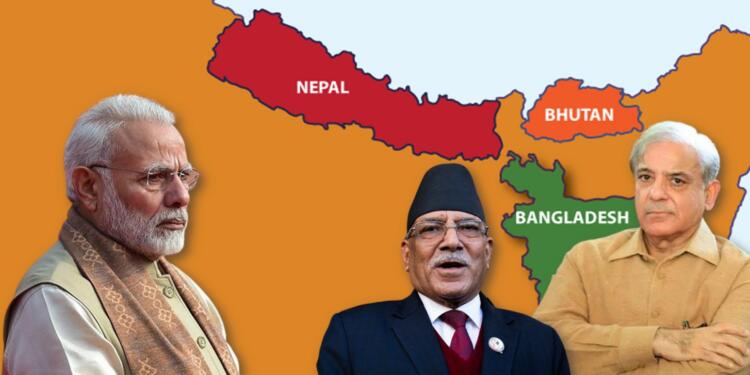Nepal in FATF: Visionary Statesman and Former PM Atal Bihari Vajpayee gave a pragmatic viewpoint for foreign policy. He categorically stated that we can change friends but not our neighbours. Following this prudent and pragmatic policy, the nation can’t afford to get swayed by the events happening in the neighbouring nations. Rather India has to keep a strong vigil to counter the spill-over effects of these events.
Nepal comes on the radar of FATF
In the past, several credible reports claimed that, under the patronage of pro-Chinese leaders, Nepal became a safe haven for terrorists. For example, a 2019 US report highlighted that Nepal had become the biggest hub of the terrorist group, Indian Mujahideen. The US report stated that the dreaded terrorist group was getting funds and support from Pakistan to carry out terror attacks against India while sitting in Nepalese territory.
Now, media reports claim that the hilly nation may enter the notorious ‘greylist’ of FATF. As per ANI, FATF may ‘greylist‘ Nepal for money laundering and terror financing while submitting its plenary report. This can be a major jolt to the already dwindling Nepalese economy that is heavily dependent on foreign aid, remittances and imports.
This news gained strong clamour when a delegation of the Asia Pacific Group on Money Laundering (APG) visited Nepal for two weeks. The regional body wanted to assess Nepal’s response to money laundering and terror financing.
The officials stated that the APG only takes into consideration the progress made by the nation till 16th of December while making its evaluation report. This has left Nepal in a vulnerable spot for a possible greylisting. Currently, Nepal lacks strict legislations and enforcement of the laws related to money laundering and terrorist financing.
Earlier, Nepal had been on FATF greylist from 2008-2014. Back then, India had helped Nepal to fight against money laundering and terror financing. For example, in 2014, Indian officials trained Nepalese officials to counter money laundering.
Apart from India’s help, Nepal took a series of progressive steps like amending the Anti-Money Laundering Act 2008 to come out of the dreaded list.
Timeline and economic Impact of Greylisting
The APG is expected to submit its preliminary report in February. After getting Nepal’s submissions on it, the group will hold face-to-face interaction in April before preparing its final report. After deliberating on the final report, the APG plenary will determine whether the Nepalese laws have sufficient checks to stop money laundering and terror financing or not.
Once listed as ‘jurisdiction under increased monitoring’, colloquially known as greylist by the FATF, the nation has to develop action plans in a specified time frame. It is important to note that entry into the notorious greylist doesn’t subject a nation to sanctions. But it gives a grim signal to the international banking system about the said nation.
In case Nepal is put on the greylist, it would face troubles in finding trade opportunities while at the same time, credit rating agencies would downgrade Nepal and possibly shrink its economy.
Pakistan is a prominent example of the excruciating pain a nation has to suffer for getting into greylist. As per its own reports, Pakistan had to suffer a loss of more than $38 billion for being in the greylist of FATF.
Also Read: The real reason why Pakistan may be removed from the FATF grey list
Similarities with Pakistan
Apart from this, Nepal has many more striking similarities with Pakistan.
Just like Pakistan, Nepal is cosying up with China and is virtually becoming a vassal state. Through CPEC and illegal secession of Saksham valley, Pakistan compromised its sovereignty to China. Nepal is doing exactly the same by ignoring the dragon’s great advances into its territory.
Both the nation’s polity and economy have come to a stage of virtual collapse that is only glued with Chinese adhesive. To spice this ugly porridge, leaders of both Nepal and Pakistan use anti-India rhetoric to get traction and run away from their shoddy acts.
This makes it evident that India has to come to a realisation of this changed reality. Rather than being in denial, the nation has to plan accordingly to quell any of the evil advances of the neighbouring nations.
Support TFI:
Support us to strengthen the ‘Right’ ideology of cultural nationalism by purchasing the best quality garments from TFI-STORE.COM

























